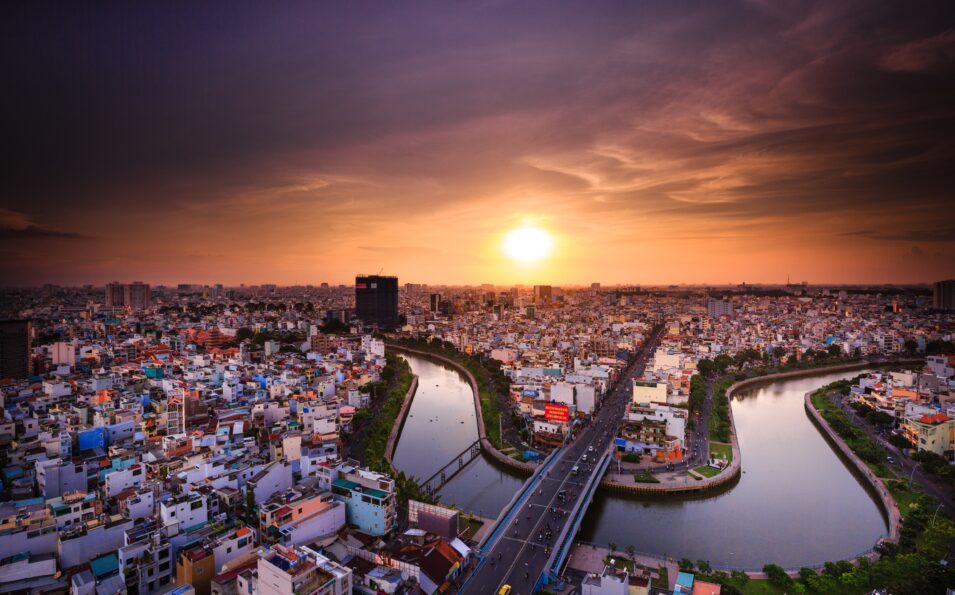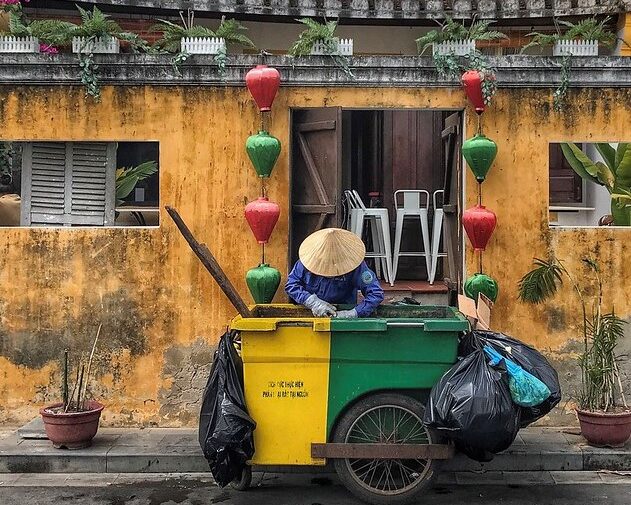The Maldives has been overwhelmed by managing not only its domestic waste but also the marine debris generated by other countries that is carried in by ocean currents.
The Maldives’ total land area (115 sq mi) makes it the smallest country in Asia, although it is one of the most geographically dispersed countries in the world. This dispersion has proven to be highly challenging for solid waste management; models deployed range from central and regional waste management dump sites to hybrid systems for resorts to informal practices for local communities. To help stem the flow of waste, the Maldives banned the production and sale of single-use plastics in 2022. The ban seeks to promote the use of sustainable alternatives, safeguard public health, and protect the vulnerable marine environment of the country.
Under the Save our Seas Initiative, USAID’s Clean Cities, Blue Ocean (CCBO) program offered international technical expertise to the Maldives through its local grants program. In particular, CCBO worked to develop a replicable sustainable island waste management model that could become an archetype for other developing small islands. By the end of the program in 2023, CCBO had safely managed over 180 metric tons of waste and improved solid waste services for more than 413,000 people.
In 2022, USAID launched the Ocean Plastics Reduction Activity, which builds on the Clean Cities, Blue Ocean program by mobilizing funding for solid waste management (SWM) and 3R (reduce, reuse, and recycle) activities and improving government capacity. The program works alongside local partners to target system inefficiencies and areas of reliance on virgin plastics, to increase participation in SWM and 3R programs, and to prevent thousands of tons of plastic from leaking into the environment.
Current Programs
Clean Cities Blue Ocean (2019-2025)
CCBO is a five-year, global program working in rapidly urbanizing focal countries across Asia and Latin America to target ocean plastics directly at their source. CCBO works to improve solid waste management systems in areas that are at the heart of the global plastic pollution crisis, build capacity and commitment for the 3Rs, and promote sustainable social and behavior changes. In support of these objectives, CCBO partners with national and local governments, members of the private sector, non-governmental organizations, and local women’s and youth organizations. CCBO is implemented by Tetra Tech ARD, in association with The Manoff Group and International City/County Management Association.
Ocean Plastics Reduction Activity (OPRA) (2022-2027)
OPRA aims to reduce reliance on virgin plastic inputs and products; professionalize, improve, and expand SWM; empower communities to drive local SWM solutions; and strengthen the enabling environment for SWM. Research Triangle Institute implements this activity.
Projects



